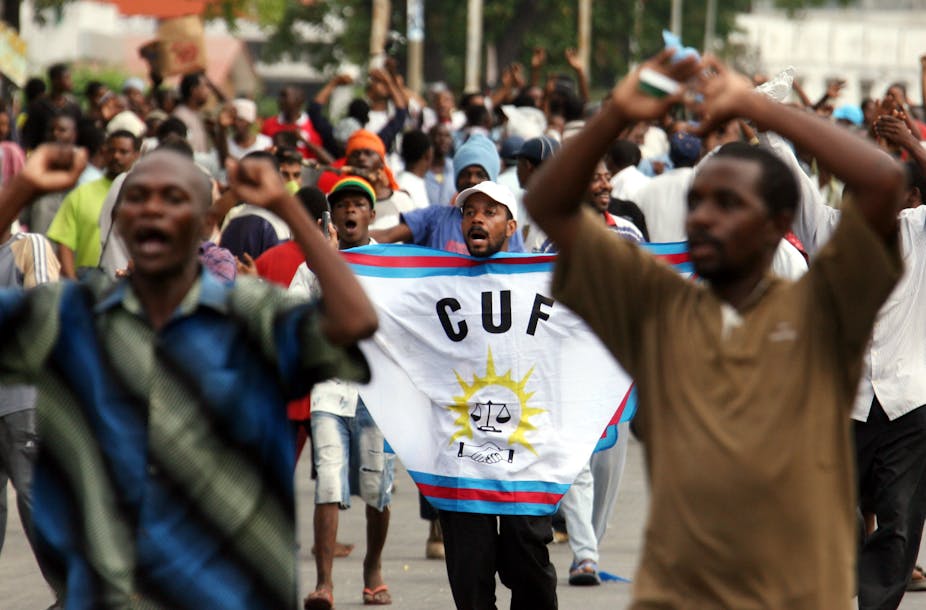Tanganyika secured independence in 1961 from the British. Zanzibar, an archipelago off the mainland consisting of two large islands and many small ones, was granted formal independence two years later. It became a constitutional monarchy ruled by Sultan Jamshid bin Abdullah. But this was short lived and a bloody revolution followed early in 1964.
The revolution eventually led to the merger of the Tanganyika mainland with the islands of Zanzibar. And so it was that 53 years ago on April 26, 1964, the United Republic of Tanzania was born.
While there are different reasons for the revolution in Zanzibar, it is generally accepted that ethnic tensions played a part. This was the case because immediately after independence Zanzibar was administered by the predominantly Arab Zanzibar Nationalist Party (ZNP), which had formed a governing coalition with the Zanzibar and Pemba People’s Party (ZPPP).
The coalition took power in spite of the fact that the predominantly black African Afro-Shiraz Party (ASP) had won more votes in elections organised by the British in 1961 and 1963.
This led to the bloody revolution in 1964 which saw the Sultanate overthrown. Scores of Arabs were murdered, mutilated and imprisoned by a paramilitary force dominated by black Africans who felt disenfranchised and disempowered.
Historical tensions
Hundreds of years of coexistence between Arabs, south Asians and Africans had blurred ethnic distinctions but during and after the revolution ethnicity was politicised.
The majority African population became increasingly resentful of the political dominance of the minority Arab communities. But some have argued that the revolution was as much the result of socioeconomic disparities.
Owing to historical marginalisation and racism, black Africans were generally poorer and lived in low-quality housing. They were also unable to access the same opportunities as their Arab or Indian counterparts. This inequality pushed them to revolt against people they considered oppressors.
The revolution eventually led to the merger of the Tanganyika mainland with the islands of Zanzibar. And so it was that 53 years ago on April 26, 1964, the United Republic of Tanzania was born.
In spite of the union, hostilities between Arabic islanders and Africans from the mainland continue to this day. Many of the Arab elite who survived fled the islands and those who remained resented the loss of power and what they considered a forced union with the mainland.
The main islands of Zanzibar – Unguja and Pemba – are semi-autonomous and they maintain control over domestic affairs through the Revolutionary Council and the House of Representatives.
Union politics
In 1964, Abeid Karume became the president of Zanzibar despite not being directly involved in the revolution. It was Karume who negotiated the union with Tanzanian President Julius Nyerere and aligned Zanzibar with a form of scientific socialism.
This form of socialism was more similar to the Eastern European system of government at the time than it was to the African socialism – “ujamaa” – Nyerere espoused on the mainland.
By 1972, widespread dissatisfaction with the government and a general failure of Karume’s socialist policies came to a head with his assassination. At this point, thanks to technical support from China and East Germany to establish an intricate spying network, Zanzibar had become a police state. Karume’s death was the culmination of weeks of fighting between pro and anti-government forces.
To suppress the tension that continued to simmer after his death, the Tanganyika Africa National Union (TANU) formally merged with the ASP to create the “Revolutionary Party” (Chama Cha Mapinduzi, or CCM). The CCM became the ruling party across Tanzania and set about reducing the autonomy of the islands, especially in the areas of security and banking.
But to this day there are those who still question whether Karume had the authority to sign a union agreement with Nyerere. This question is especially pertinent in light of ongoing discussions about the nature of the union vis-à-vis the new Tanzanian constitution.
Free and fair elections?
Serious questions about fraud and electioneering have marked all of the major polls in Zanzibar and elections have often been violent. Some have even dismissed the polls as futile.
Even then, the 1995 and 2000 elections were hotly contested and in the run up to the 2005 poll, the opposition’s Civic United Front (CUF) staged a protest. The CUF subsequently boycotted parliament for four years.
In 2010, an agreement for a government of national unity was reached between Tanzania’s CCM and Zanzibar’s CUF. It was assumed that with the government of national unity, Zanzibar would finally have a trouble-free election in 2015.
Instead, the Zanzibar Electoral Commission (ZEC) – a partisan agency that supports the central government agenda – annulled the result. The move was seen as a clear attempt by CCM to hold onto power in Zanzibar by any means necessary.
There was a repeat election in March 2016 but CUF protested what they saw as the theft of a legitimate victory in 2015 by refusing to participate. Violence has continued to mar the post-election period.
At the same, anti-Zanzibar sentiment on the mainland is moving beyond political rhetoric. As recently as March this year, President John Magufuli threatened to cut electricity supply to the islands if the Zanzibar failed to pay a debt of 121 billion Tanzanian shillings ($54m).
Since 1980 when a submarine cable was laid from the mainland to Unguja, Zanzibar has been dependent on imported electricity. This dependency is now being exploited for political purposes.
The fate of the government of national unity hung in the balance during the 2016 elections. But it was effectively dissolved after the CUF boycott since CCM won all 50 Parliamentary seats. In spite of external pressure to return to a government of national unity this is yet to happen. It is also unclear whether a united government would normalise relations between the mainland and the islands.
Indeed, even as April 26 is celebrated as Union Day every year, there is little unity to speak of today.

